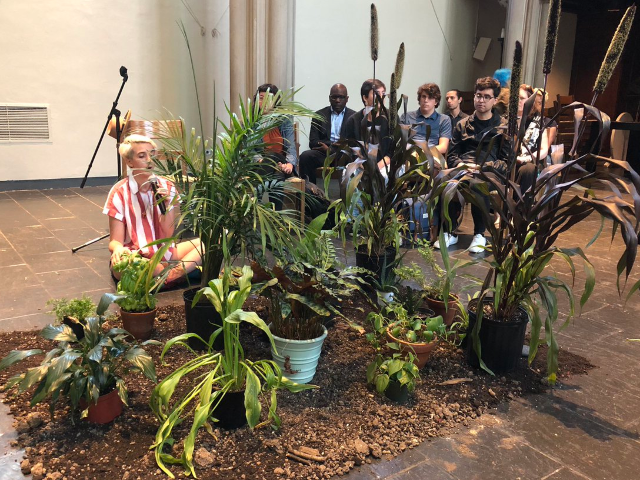New York’s non-denominational Union Theological Seminary (UTS) held a ceremony Tuesday where members of the community placed plants in the center of the chapel and confessed their sins to them.
“Today in chapel, we confessed to plants,” UTS tweeted, together with a picture of the ritual. “Together, we held our grief, joy, regret, hope, guilt and sorrow in prayer; offering them to the beings who sustain us but whose gift we too often fail to honor.”
“What do you confess to the plants in your life?” it asked:
Today in chapel, we confessed to plants. Together, we held our grief, joy, regret, hope, guilt and sorrow in prayer; offering them to the beings who sustain us but whose gift we too often fail to honor.
What do you confess to the plants in your life? pic.twitter.com/tEs3Vm8oU4
— Union Seminary (@UnionSeminary) September 17, 2019
On Wednesday, after receiving a fair amount of derisive feedback, the seminary sent out a flurry of tweets defending its actions.
“When Robin Wall Kimmerer spoke at Union last year, she concluded her lecture by tasking us—and all faith communities—to develop new liturgies by which to mourn, grieve, heal and change in response to our climate emergency,” one UTS tweet said. “We couldn’t be prouder to participate in this work.”
“So, if you’re poking fun, we’d ask only that you also spend a couple moments asking: Do I treat plants and animals as divinely created beings?” another tweet proposed in its ecological examination of conscience. “What harm do I cause without thinking? How can I enter into new relationship with the natural world?”
Tuesday’s ritual seemed in consonance with the seminary’s approach to the Christian faith.
“Progressive theology has long taken shape at Union, where faith and scholarship walk together to be a moral force in the world,” declares the seminary website in its mission statement. “Grounded in the Christian tradition and responsive to the needs of God’s creation, a Union education prepares its students for committed lives of service to the church, academy, and society.”
The education offered makes connections between Christian traditions and the insights of other faiths and “the most profoundly challenging issues of our contemporary experience: the realities of suffering and injustice, world religious pluralism, the fragility of our planet, and discoveries of modern science.”

COMMENTS
Please let us know if you're having issues with commenting.